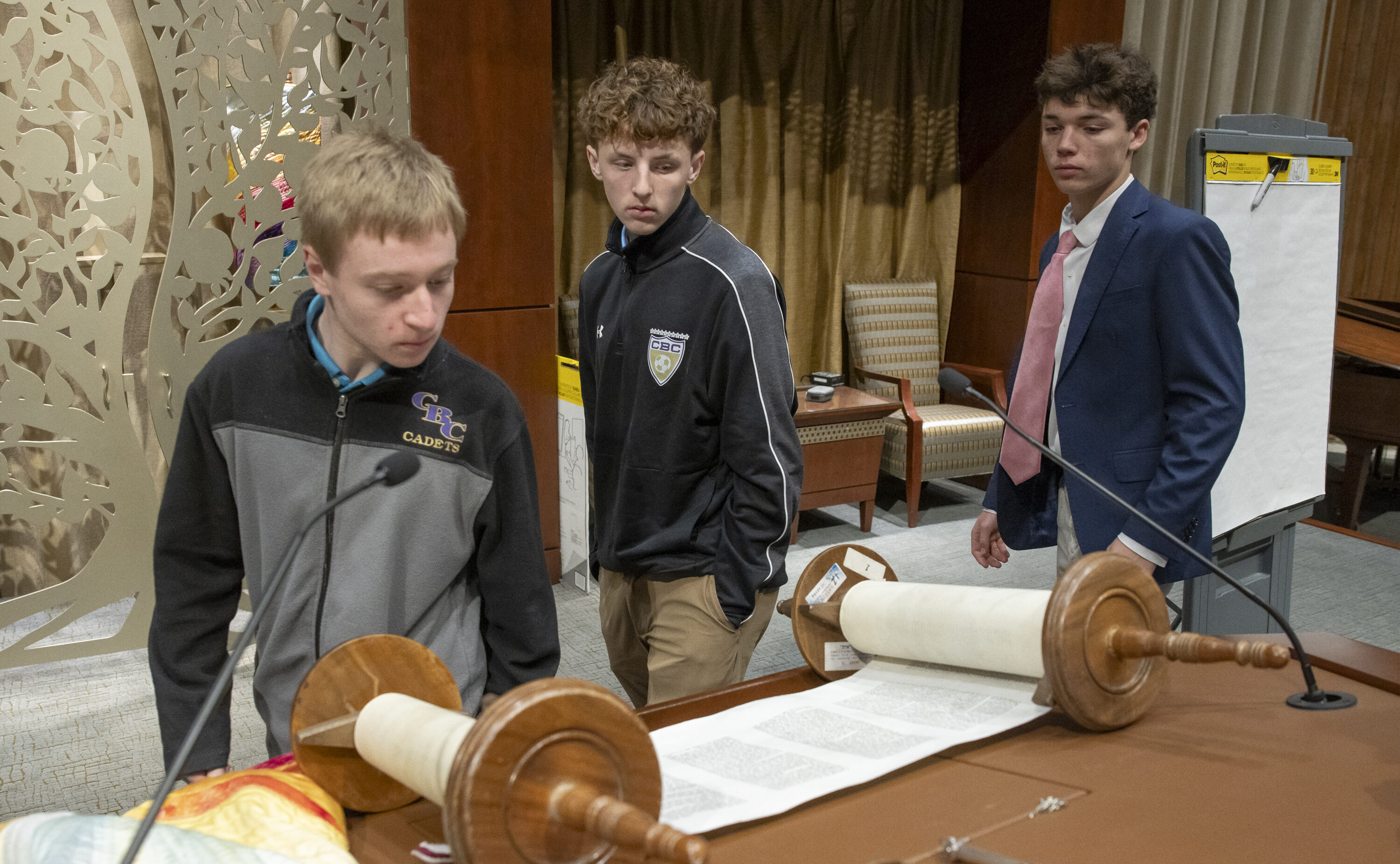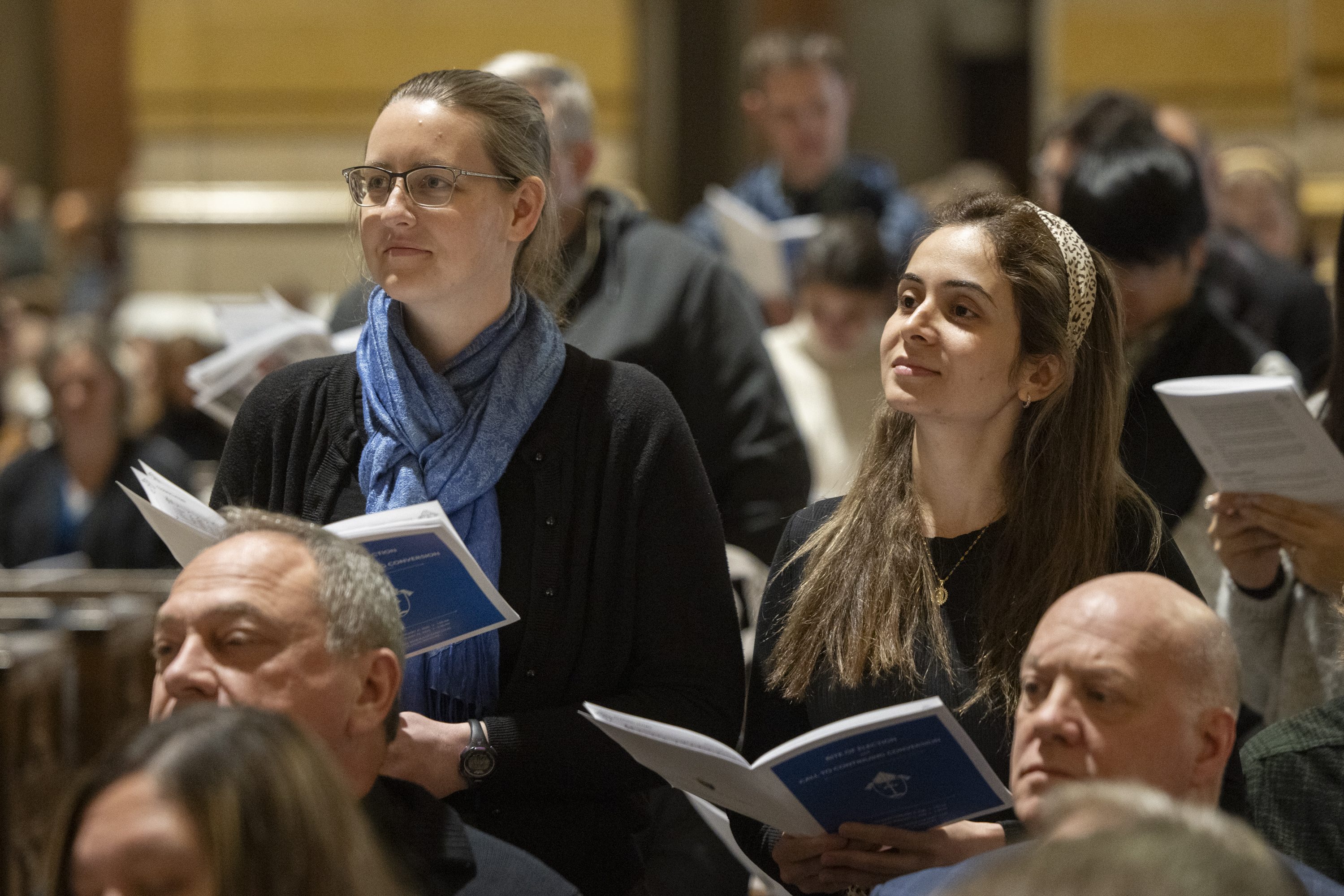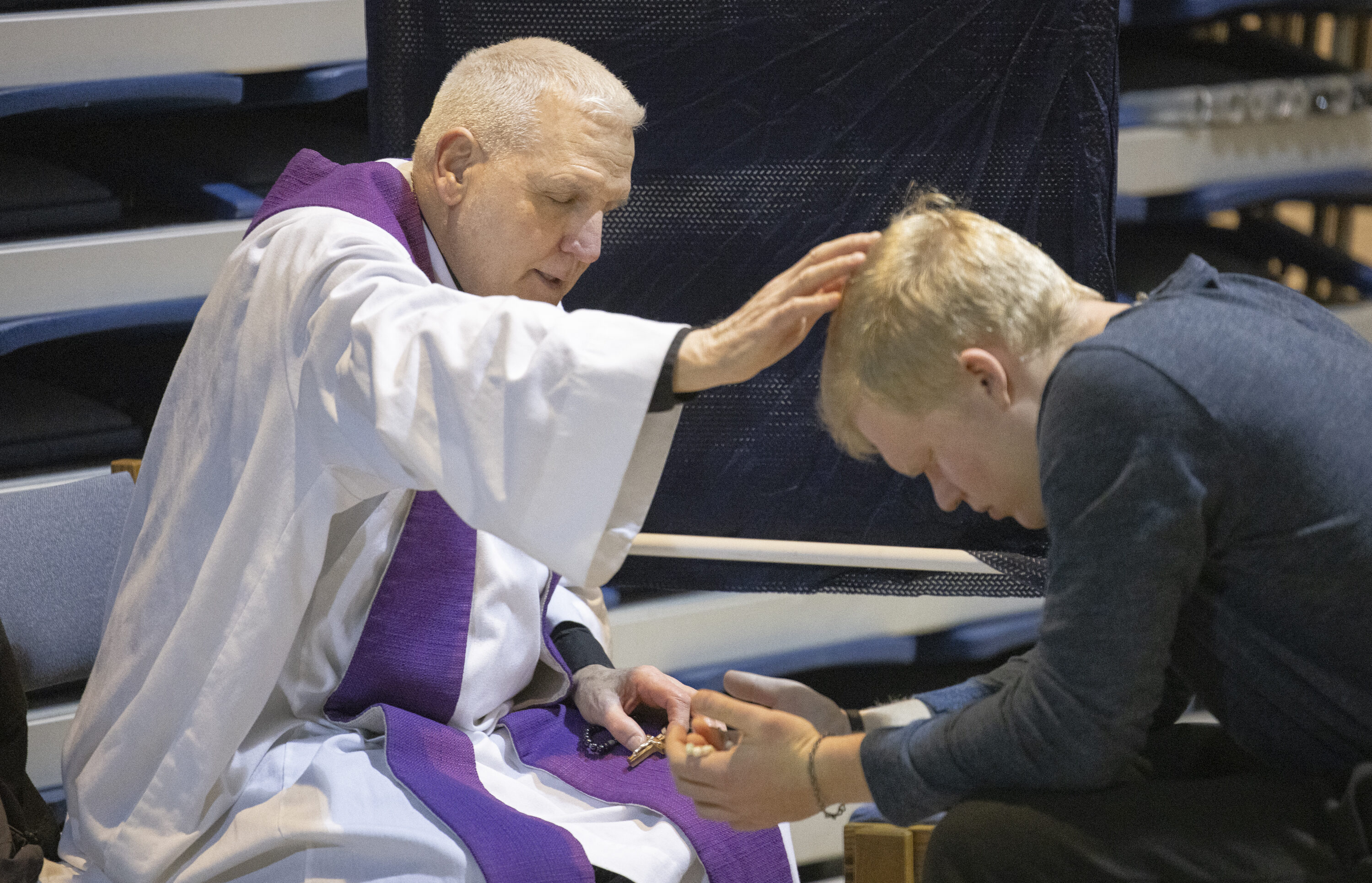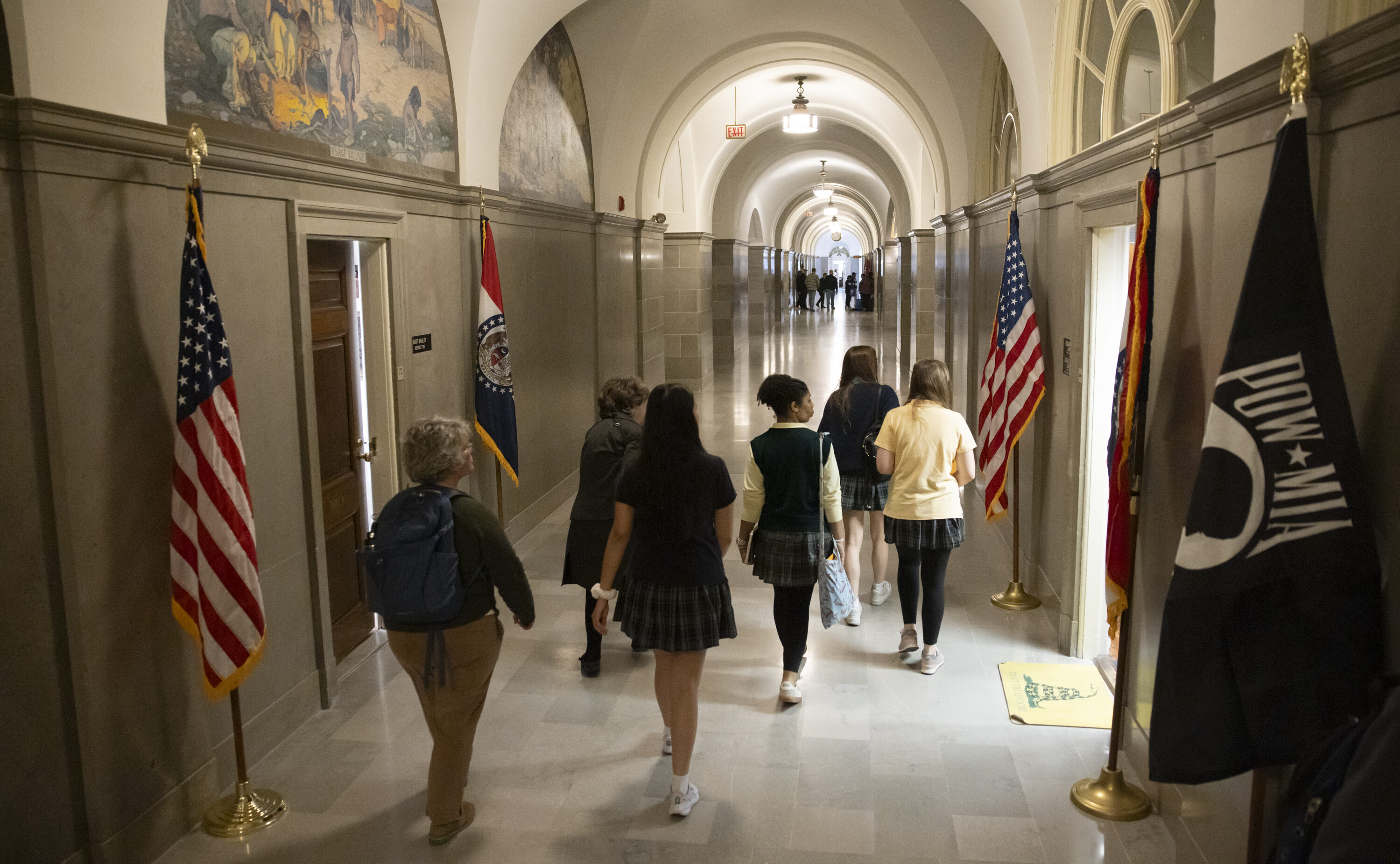Bolivian bishop Eugenio Coter cites need to protect the Amazon
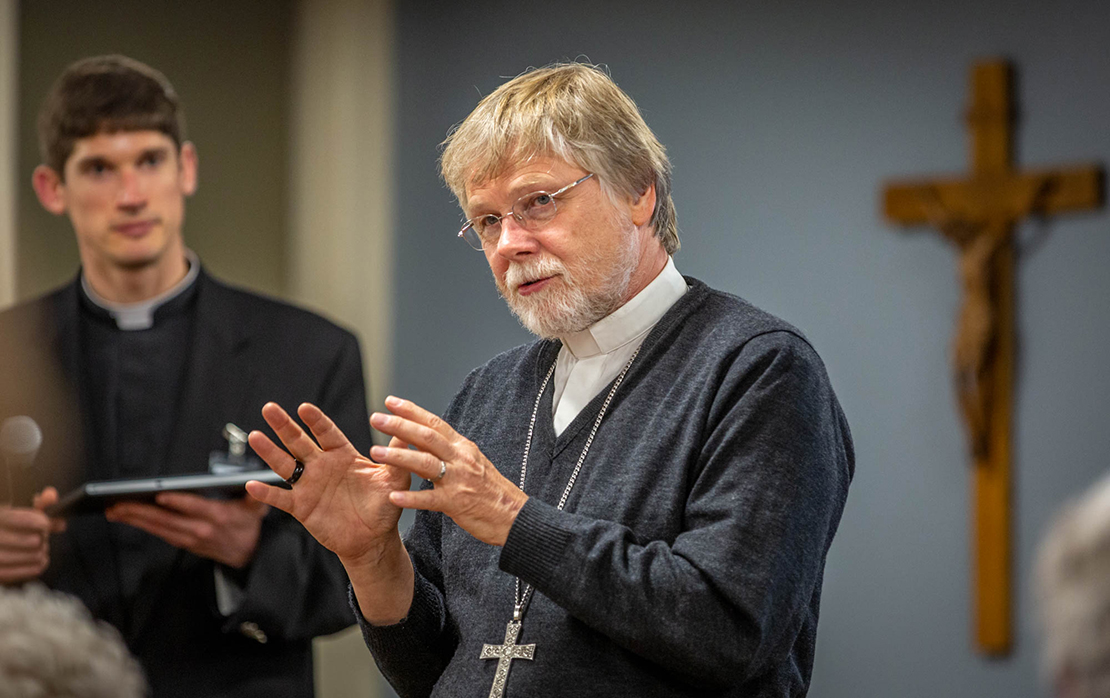
Talk highlights upcoming synod’s themes of ecology, lack of priests
In a visit to St. Louis March 25, Bishop Eugenio Coter of Bolivia spelled out the importance of the Amazonian region to the world’s ecology and the difficulties of providing sacraments to the people of the widespread region of South America with few priests.
Bishop Coter is helping to lead preparations for the Synod of Bishops for the Pan-Amazonian Region which will be held in Rome in October. He spoke at the Cardinal Rigali Center in Shrewsbury on “The Amazon in the Heart of the Church.”
Bishop Coter was appointed vicar apostolic of the Vicariate of the Pando in February 2013 after the retirement of Bishop Morgan Casey, a St. Louis priest who came to serve in the St. Louis mission in Bolivia in 1965. Bishop Casey was appointed auxiliary bishop of La Paz in 1984 and bishop of the Pando in 1988.
The Amazon rainforest includes territory belonging to nine countries in South America and has experienced significant deforestation, affecting the indigenous populations and leading to a loss of biodiversity. Bishops of the region have noted that the lands of the Amazon are coveted by agribusiness and large mining companies, which pollute rivers and encroach on land belonging to the indigenous people.
The Amazon provides much of the world’s oxygen, Bishop Coter said in an interview prior to his talk. “If you cut the jungle down there will not be a filter for the carbon,” he said in Spanish through an interpreter.
Pope Francis invoked the synod in part due to the concern for the changing climate and how it will affect the world, especially the poor, Bishop Coter said. All people need to be conscious of taking care of “our common home,” he added.
Another reason is to “learn from and work with the indigenous population who have cared for the jungle,” Bishop Coter said. The Church can have an “Amazonian face,” taking from the culture and giving it to others, he said.
The pope asked the bishops to listen to the people, he added. A consulting process of the nine countries provided a forum for people to express their opinion. The bishops will bring that input from the base communities to the synod and the Holy Father for his consideration and for the final agenda, Bishop Coter noted.
In his vicariate, he said, about 60,000 people live in areas where priests are not present and, when they are near death, there’s no one available to hear their confession and give them absolution. “They don’t even have the sacrament of healing for their sickness and their suffering,” he said.
When Jesus gave the apostles the authority to forgive sins (John 20: 21-23) “is that a command or a request?” Bishop Coter said.
The vicariate has 25 Masses scheduled each Sunday but more than 150 celebrations of the Word led by lay leaders. When Bishop Coter traveled to meet Pope Francis during the pope’s visit to South America, he stopped at a community where a Protestant evangelical pastor set up a church community in which Catholics participated “because there’s nothing else. There’s no one for them,” Bishop Coter said.
In his talk, he cited one community of 60 families hasn’t had a Mass in 18 years.
The bishops will share these stories and try to find solutions, he said. Bishop Coter cited the early Church and the creation of deacons to help in the role of charity. A possible solution that has been mentioned is to delegate, he said, but that doesn’t mean clericalizing the people. He cited a situation in one area of Europe more than 200 years ago involving the ordination of “viri Probati” (proven or tested men) to the priesthood. These would be significant, trusted people in the community, he said.
Pope Francis told reporters in January that he did not think optional celibacy for priests in the Latin-rite Church was a good idea. He said there could be some change in remote areas where Catholic communities seldom have Mass because a lack of priests, but that would require more study.
This situation is only one part of the synod, Bishop Coter stressed, with the focus on the desire to respect the pastoral needs of the people, shape a Church with an Amazonian face and follow the integral ecology called for by Pope Francis.
The presentation was sponsored by the Archdiocese of St. Louis Mission Office, Peace and Justice Commission, and the Office of Hispanic Ministry, as well as sponsorship from Language Access Multicultural Program, Franciscan Sisters of Our Lady of Perpetual Help, and the Intercommunity Ecological Council of LCWR Region X.
‘Lungs of the world’
Bishop Morgan Casey, who now lives in retirement in St. Louis after serving 48 years in Bolivia, sees the attention being given to the Amazonian region as a good thing. He was bishop of the Apostolic Vicariate of the Pando for about 25 years.
“I’m excited about the synod of the Amazons. Hopefully it will draw attention to the ‘lungs of the world.’ If the world does not take care of the Amazon, the world is going to suffer within the lifetime of many who are here because the climate of the Amazon determines the climate of the world,” he said.
The rate of tree-cutting “is just horrendous.” Bishop Casey said. “Somehow maybe the synod will raise the consciousness of the people to try to put a stop to this and find a means of development for the Amazon that will preserve the jungle as it is and at the same time enable the people to live decently.”
He called the area “my home” and noted that he is returning there for Easter celebrations.
Bishop Coter
Bishop Bishop Eugenio Coter was born in Gazzaniga, Italy, ordained a priest in 1981 and served as pastor at several Italian and Bolivian parishes and the spiritual director of the San Luis Seminary of the Archdiocese of Cochabamba, Bolivia. He worked in Cochabamba for 21 years and also was director of Pastoral Social-Caritas for seven years.
He is the official delegate of the Bolivian bishops’ conference to the Synod of Bishops for the Pan-Amazone Region.
The Pando is an area with 207,534 Catholics, 14 priests, five women religious and 23 women religious serving in six parishes and two missions.
Ministry with an Amazonian face
Part of the “Preparatory Document for the Synod on the Pan Amazon Region” addresses the need for new paths to provide pastoral care:
“In order to transform the Church’s precariously-thin presence and make it broader and more incarnate, a hierarchical list of the Amazonia’s urgent needs should be established. The Aparecida document mentions the need for “Eucharistic integrity” (DAp 436) for the Amazon region, that is, that there be not only the possibility for all the baptized to participate in the Sunday Mass, but also for a new heavens and a new earth to take root in the Amazon Basin in anticipation of the Kingdom of God.
“In this sense, Vatican II reminds us that all the People of God share in the priesthood of Christ, although it distinguishes between the common priesthood and the ministerial priesthood (cf. LG 10). This gives way to an urgent need to evaluate and rethink the ministries that today are required to respond to the objectives of “a Church with an Amazonian face and a Church with a native face” (Fr.PM). One priority is to specify the contents, methods, and attitudes necessary for an inculturated pastoral ministry capable of responding to the territory’s vast challenges. Another is to propose new ministries and services for the different pastoral agents, ones which correspond to activities and responsibilities within the community. Along these lines, it is necessary to identify the type of official ministry that can be conferred on women, taking into account the central role which women play today in the Amazonian Church. It is also necessary to foster indigenous and local-born clergy, affirming their own cultural identity and values. Finally, new ways should be considered for the People of God to have better and more frequent access to the Eucharist, the center of Christian life (cf. DAp 251).”
In a visit to St. Louis March 25, Bishop Eugenio Coter of Bolivia spelled out the importance of the Amazonian region to the world’s ecology and the difficulties of providing … Bolivian bishop Eugenio Coter cites need to protect the Amazon
Subscribe to Read All St. Louis Review Stories
All readers receive 5 stories to read free per month. After that, readers will need to be logged in.
If you are currently receive the St. Louis Review at your home or office, please send your name and address (and subscriber id if you know it) to subscriptions@stlouisreview.com to get your login information.
If you are not currently a subscriber to the St. Louis Review, please contact subscriptions@stlouisreview.com for information on how to subscribe.

